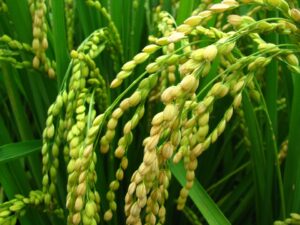 Hydrolyzed rice protein
Hydrolyzed rice protein
A natural plant derived protein that provides superior anti-oxidant properties and essential fatty acids.
The Plant
Rice takes Its name to English from Greek Oryza, via Latin oriza, Italian riso and finally Old French ris (the same as present day French riz).
Domesticated rice comprises two species in the Poaceae (“true grass”) family, Oryza sativa and Oryza glaberrima. These plants are native to tropical and subtropical southern Asia and southeastern Africa. Rice provides more than one fifth of the calories consumed worldwide by humans. In 1694, rice arrived in South Carolina, probably originating from Madagascar.
Proteins
Dietary proteins provide amino acids to build and maintain tissues, and to form enzymes, some hormones, and antibodies. Proteins function in some body regulating processes and are a source of energy. Proteins, unique among the energy nutrients because they contain nitrogen, are composed of amino acid units that are linked in chains. Essential amino acids cannot be manufactured by the body; therefore, they must be provided by dietary protein. All of the eight amino acids must be present at the same time and in the right proportion in order for protein to be synthesized. The protein in rice is well balanced because all eight amino acids are present and in proper proportion. Therefore, rice is a unique cereal grain. The protein content of rice, while limited (ranging from 2.0 to 2.5 mg. per 1/2 cup of cooked rice), is considered one of the highest quality proteins to that provided by other cereal grains.
Biological value is a measure of protein quality, assessed by determining the extent to which a given protein supports nitrogen retention. The most perfect protein by this standard is egg protein (biological value 100); this has been designated the reference protein by the Food and Agriculture Organization of the United Nations. Rice protein has a biological value of 86. Fish fillet protein has a biological value of 75-90. Corn protein has a biological value of 40. Generally, a biological value of 70 or above indicates acceptable quality.





